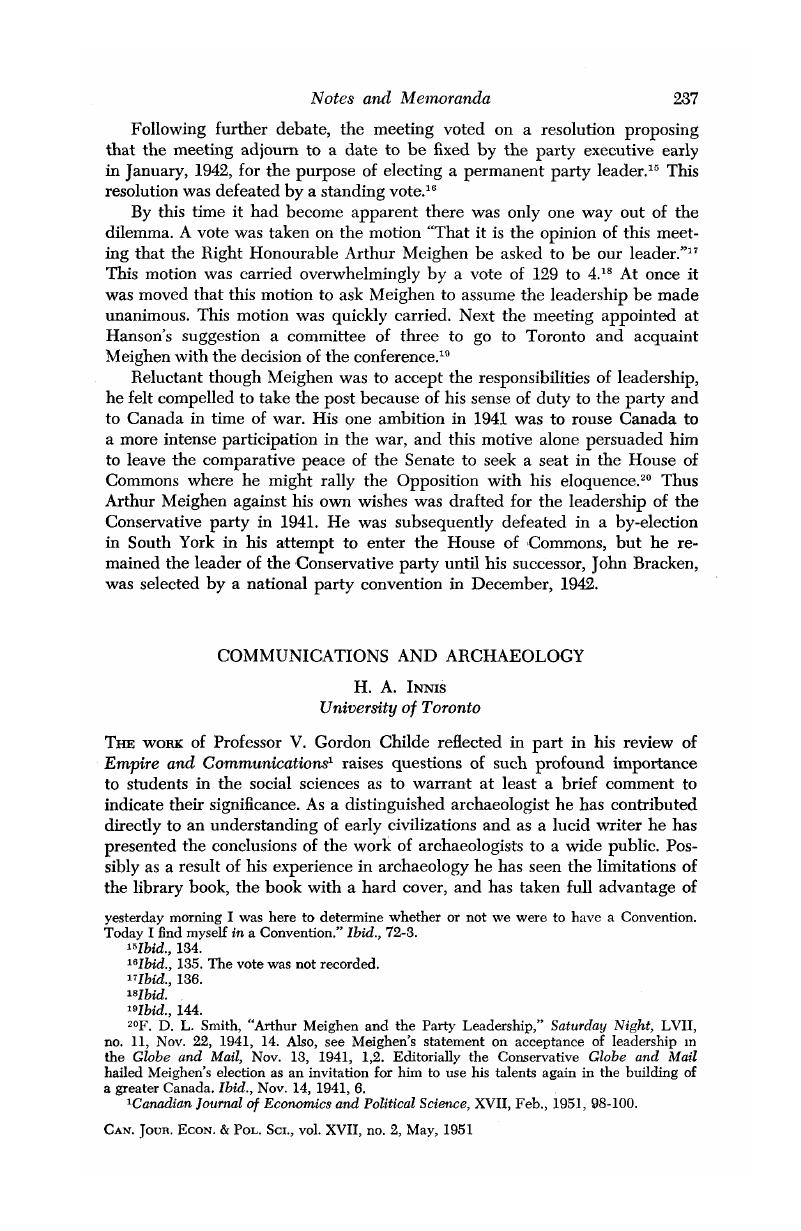Article contents
Communications and Archaeology
Published online by Cambridge University Press: 07 November 2014
Abstract

- Type
- Notes and Memoranda
- Information
- Canadian Journal of Economics and Political Science/Revue canadienne de economiques et science politique , Volume 17 , Issue 2 , May 1951 , pp. 237 - 240
- Copyright
- Copyright © Canadian Political Science Association 1951
References
1 Canadian Journal of Economics and Political Science, XVII, 02, 1951, 98–100.Google Scholar
2 See the late Casson, Stanley, “Written and Unwritten Records,” Antiquity, 03, 1951, 22–3.Google Scholar
3 See ProfessorLods, Ad., “Le Rôle de la tradition orale dans la formation des récits de l'ancien testament,” Actes du Congrès internationale d'histoire des religions tenu à Paris en Octobre 1923 (Paris, 1925), 468–80.Google Scholar
4 “Oral Tradition in the Bible,” Jewish Studies in Memory of George A. Kohut 1874-1933, ed. Bacon, S. W. and Marx, A. (New York, 1935), 248 Google Scholar; see also Gandz, Solomon, “The Dawn of Literature: Prolegomena to a History of Unwritten Literature,” Osiris, VII (Bruges, 1939), 261–522.Google Scholar
5 Ibid., 253.
6 Ibid., 267.
7 Ibid., 260-1.
8 Ibid., 265.
9 See the volume reviewed, pp. 65-6, and elsewhere, based on Professor Childe's work.
10 See Cornford, F. M., Thucydides Mythistoricus (London, 1907), 70–3.Google Scholar On the influence of logic and grammar of the Middle Ages in which thought deals with abstractions and concepts drawn out of things by a sifting process and becomes a sort of brick-yard baked into little hard units, see Fenollosa, Ernest, “An Essay on the Chinese Written Character” in Instigations of Ezra Pound (New York, 1920), 366, 380.Google Scholar Gilson argues on the other hand that it was the work of the schoolmen which gave French its great advantages in precision. It probably also explains Gide's answer to the question who was the greatest French poet, “Victor Hugo, alas.”
11 Thucydides Mythistoricus, 11-39; also Grundy, G. B., Thucydides and the History of His Age (London, 1911).Google Scholar
12 From Religion to Philosophy (London, 1912).Google Scholar
13 Frankfort, H. and Frankfort, H. A., Wilson, J. A., Jacobsen, T., Irwin, W. A., The Intellectual Adventure of Ancient Man: An Essay on Speculative Thought in the Ancient Near East (Chicago, 1946), 126 ff.Google Scholar
- 1
- Cited by




